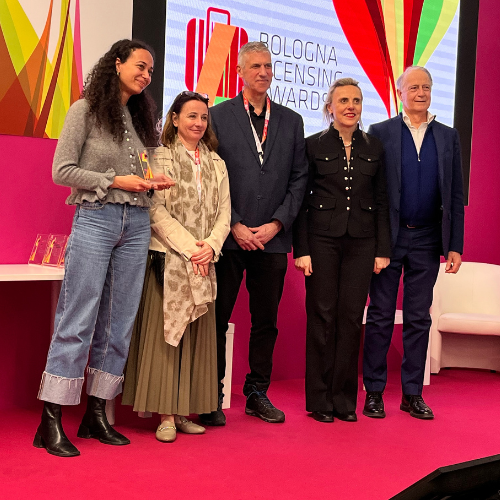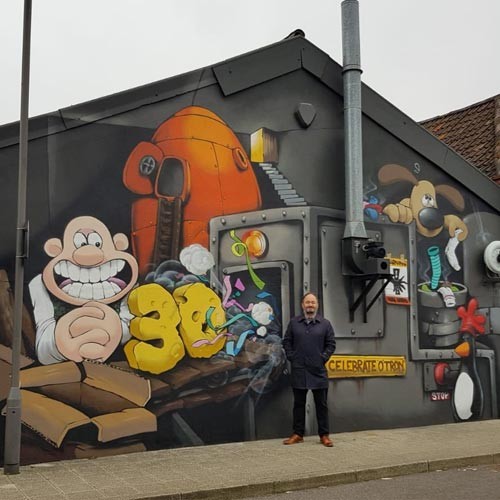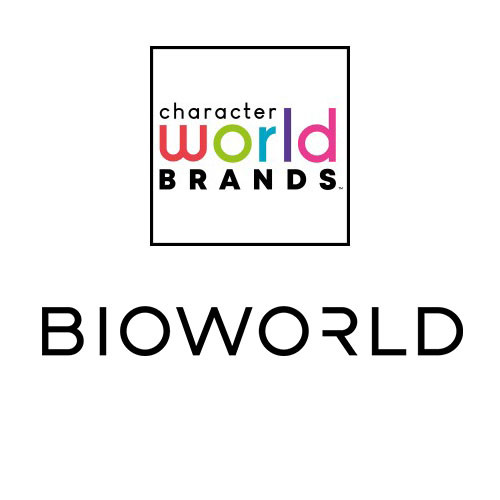Start Licensing’s Ian Downes looks at retailers who are more specialised in their licensed offering this week.
The current consensus in licensing is that you need to have retailers on your side to succeed at the moment. There is lot of talk of the ‘licensing triangle’ – the relationship between retailer, licensee and rights owner.
There is a push-pull effect – if you can get a retail buyer interested in your licensed property then a licensing programme should develop. That said there is only so much shelf space available and in the ‘bigger’ retailers that shelf space is often already spoken for or, indeed, paid for.
With this in mind it is always interesting to see how licensed products are featured in different retailers, particularly those that are more specialist in their outlook.
Lakeland is a retailer that has started using licensing in a selected way. They have featured licensed products linked to food brands, celebrities and chefs historically. A current example of this is a range of Mary Berry-branded bakeware and accessories. Interestingly these products sit side by side with a range of Great British Bake Off products – I guess ultimately the two ranges will appeal to different consumers and the Great British Bake Off brand is being used to help recruit freshman bakers inspired by the TV series – although I wonder how many of those consumers switch allegiance in store to Mary’s range. Both ranges are well presented and use their respective branding well.
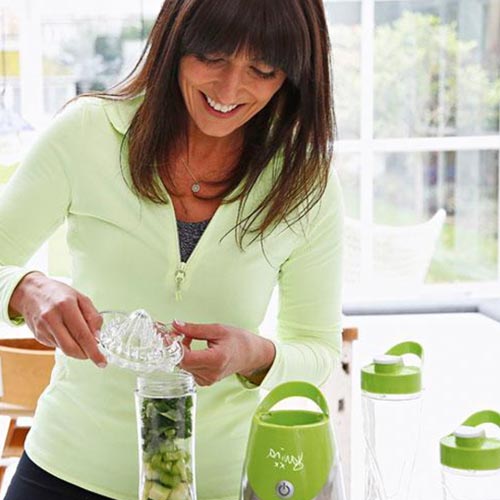
Lakeland have also recently launched a partnership with Davina McCall who features in window displays and in-store on products centred on healthy eating and lifestyle. This is probably a hybrid deal that crosses over PR, advertising and licensing, but it is interesting to see a speciality retailer using celebrity endorsement in this way. This is a technique and style of licensing seen more often in the United States.
Using Davina will help Lakeland reach a new audience and help spread the word that they aren’t just for baking. Indeed they have a fantastic Star Wars bakeware range in store at the moment which is well merchandised.
I am pleased to see that Lakeland have stuck with this kind of licensing and seem to be a convert to entertainment-based licenses. That said I think this will only remain so if product sells well for them and they continue to pick the right licences for their stores. These may not be the same ones that appear in the grocers for example.
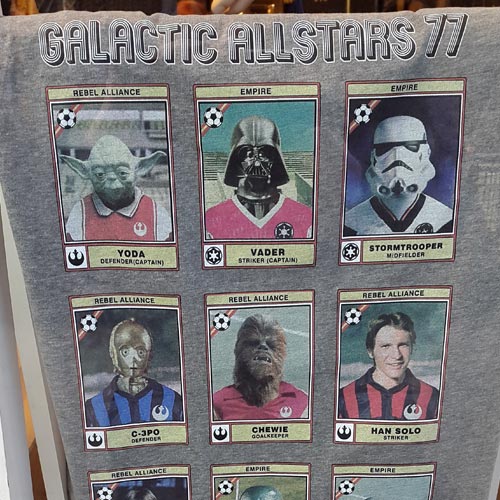
Joy is another retailer that flirts with licensing. At the moment they have some Chunk t-shirts in-store including some very cleverly designed Star Wars tees. One of which I thought worked particularly well in reaching a ‘crossover’ audience. The design features Star Wars characters as part of a fictional football squad depicted on old school style football trading cards.
This is another example of the importance of custom design and offering licensees a broad base of design options so they can offer different styles to retailers. Retailers will increasingly want a distinct style.
Joy also use licensing in categories like gifts and greeting cards, but seem to take a relatively selected approach to licensing. For example they carry a London Transport Mind the Gap sandwich box in their gift department and PG Tips and Oxo vintage tinware in kitchenware. One creative thought on the Mind the Gap sandwich box – I would like to see it amended to Fill the Gap!
I think Joy are keen to offer their consumers an eclectic product mix and seem to choose licences accordingly picking what products fit best with their general offering.
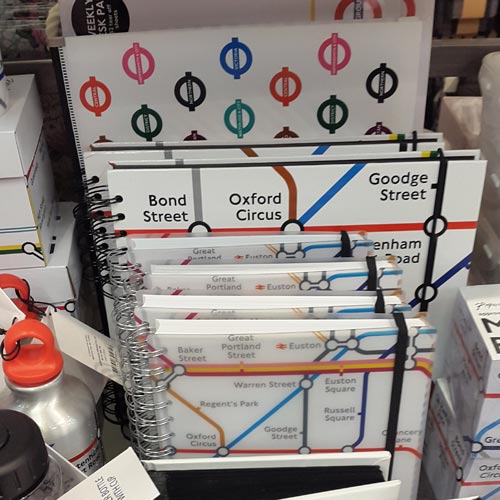
I was also pleased to see that Paperchase had embraced licensing with a little more depth recently. They currently have two licensed ranges in store that they appear to have developed themselves directly as direct to retail or ‘own brand’ offers.
One was a charming range of Peter Rabbit paper and party goods. The range was well presented in-store all grouped together and the design style seemed fresh resonating with the Paperchase consumer as it had a contemporary feel to it.
Their other licensed range was featuring the iconic London Underground map design. Again this had the feel of a custom made design and it worked well because of the depth of the range offered. I am not sure if this would run in all Paperchase stores, but in the London-based ones I am sure it proves very popular with tourists and it is stylish enough to appeal to local consumers as the design has been used in a way that moves it on from souvenir product.
Paperchase is a store that has always been cautious about licensing I think, although many of the greetings cards they carry would be licensed ones. I think their caution may stem from a desire to offer unique and original products, but I hope these two ranges herald more opportunities for licensing.
Paperchase is a retailer well placed to develop good relationships with property owners and to work collaboratively to create design styles that will not be seen all over the high street. Again, there is an onus on rights holders to recognise that retailers have different outlooks and requirements. Consumers also don’t want to buy the same thing in every shop – this is a good opportunity for licensing as it can offer a genuine point of difference.
Ian Downes runs Start Licensing, an independent brand licensing agency. His Twitter handle is @startlicensing – he would welcome your suggestions for what to look out for.












